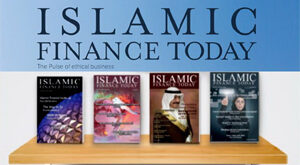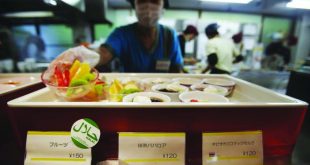Harsh words against the development of Shari’ah compliant financing has not faded despite the deeply ingrained flaws in the world’s dominant capitalist system which is coming apart at the seams like a cricket ball that has been knocked around for too many sixes. Nevertheless, politically motivated censure of the Shari’ah financing sector goes on and on. Predictably, much of the diatribe originates from certain quarters in the US as compared to Europe which has for the most part welcomed the entry of Shari’ah financing, not least because it offers some soothing relief from the volatile financial environment that has witnessed prominent financial institutions and banks declare bankruptcy. Everyday people are also feeling the pinch.
Think-tank fire
While this article does not permit the airing of all the recent anti-Shari’ah compliant finance diatribe that has surfaced from various quarters, it is thought here worthwhile to give just a few specimens of it which are well worth a read. Take for example a recent research paper prepared by the Center for Security Policy (CSP), a conservative think tank in the US. In it, the paper starts off with an imaginary scenario of the Nazis in the 1930’s seeking to float the first Mein Kampf compliant bond, a Wall Street backed Nazi mutual fund and a Nazi funds index being launched amidst an environment of euphoria where London competes to become the international center for Nazi finance.
Then it reads, ‘Now fast forward to the present and replace Nazi with Islamic and Mein Kampf with Shari’a and the preposterous scenario becomes the reality of what has become known as Islamic finance today.’
Furthermore, the report cites a number of controversial Muslim economists such as Sheikh Mohammed Sayyid Tantawi from Al-Azhar in Egypt who had issued a fatwa to justify interest in 1989. Other references are made to Muslim economists who criticize Shari’ah finance for having “made a mockery of Islam” while another has described it as “a manifestation of the Muslim community’s moral degradation,” and a third believes that it is a “serious crime against Islam”.
The paper also turns the dagger on ZakatA tax that is the duty and social obligation of every Muslim. This as the fourth Pillar of Islam. More, the compulsory requirement for Muslims with wealth to donate a portion of their income to the needy in society by suggesting that it will be used for purposes that pose a threat to the West. Here, the lack of knowledge on the part of those who prepared the report is also evident as it claims that the Holy Qur’an obligates Muslims to make a donation of 2.5 per cent of their income when its is actually a calculation based on 2.5 per cent of their saved and invested wealth.
Perhaps the most bizarre comparison is that made with Lenin who is quoted to have said that the capitalist would ‘gladly sell us the rope with which we’ll hang them’. The CSP report then twists the quote, adding that ‘were he alive today and observing Islamic finance, he might have added that they would not only sell us the rope, but would also help us raise the money for it and when the time came to hang them, they would find a properly qualified Shari’a advisor to certify that the hanging is hundred percent Shari’a-compliant’.
Humour aside, those Shari’ah banking practitioners working in the 20 Islamic Banks located in the US have to contend with active campaigns run by various think tanks such as CSP that are aimed at damaging the image of the sector which is making sincere efforts to promote a more ethical and balanced approach to personal and corporate finance. This is perhaps one reason why these banks in the US have not broken through to deal in the higher levels of Shari’ah finance as for example London has. Instead, the US Shari’ah banks have tended to be focused more on providing domestic and retail banking services.
Some US critics are even damning the Dow Jones Islamic Index citing National Security threats and claiming that Shari’ah scholars who advice banks support violent ‘jihad’ against the US. Even the prestigious Harvard University which has accommodated the development of knowledge on Shari’ah finance has come under fire for its stance.
Waging wars
To a global audience, it might also seem as though strong criticism of this type coming from the navigators of a system that is causing much hardship and suffering to people in all parts of the world, both west and developing, is somewhat ironic. In his book, ‘Understanding Islamic Finance’, Muhammad Ayub claims that the current day socio-economic problems are caused by the ‘unbridled creation of fictitious assets, particularly reserve currencies, and the unhindered forces of demand and supply with exploitative tools of ‘sovereignty’ of individuals, unfettered self interest and the interest based corrupt system’. Moreover, he shows that the recently waged wars that have killed millions of people have been made possible by the rampant creation of fictitious monetary assets and the abuse of ‘deficit financing’ or the creation of reserve money.
Whilst much of what Ayub describes is glossed over by a US media that has lost its independence and ability to serve the genuine needs of the people, interesting facts continue to emerge. Take for instance the report by the watchdog group OMB Watch which claims that more than a quarter of senators and congressmen have invested at least $196 million of their own money in companies doing business with the Department of Defense thereby directly profiting form the wars in Iraq and Afghanistan. No wonder there is no shortage of voices in high places calling for an expansion of hostilities to include Iran too.
Moreover, Congressmen have given themselves a loophole whereby they only have to report their assets in broad ranges and can be off by as much as 160 per cent (www.rinf.com). On the other hand, the US soldiers that are wounded are billed by the government when they return so that effectively they have to pay their own hospital bills as well as the cost of uniforms and helmets that are destroyed in battle.
Food price crisis
One consequence of the recent US led wars is the oil price hike which has spread to hit the commodities market and now to essential foods. The world’s poor are currently being ‘massacred’ according to the Venezuelan President Hugo Chavez who claimed that we are now witnessing a decline in capitalism. He added that the problem is not with food production but with the economic, social and political model of the world. The United Nations World Food Program (UNWFP) too has censured the forces underpinning the soaring food prices that it says will ‘plunge more than 100 million people on every continent into hunger’. The UNWFP which provides food to over 70 million people at present has had to raise its budget for 2008 by 17 per cent, from $2.9 billion to $3.4 billion.
A frontline reason for the crisis has been widely identified as the pursuit of bio-fuels as a substitute by many parts of the West. For example, Washington’s decision to switch to bio-fuel promotion had an immediate impact on the market and boosted the prices of staple foods like corn. The irresponsibility of these policies can be weighed against the fact that Washington was actively asking developing countries to shift their resources away from staple agriculture like rice, claiming that it would be cheaper to import these commodities from the US.
Developing countries were instead requested to grow high cash yielding crops that would bring in much needed export revenue even at the cost of undermining domestic food security. For example, Sri Lanka was about to embark upon this advice in 2003, before a change in the political regime resulted in a policy shift away from the Washington dictates. However, many developing countries have not been as fortunate.
Consequently, the commodity hike has been accompanied by unprecedented rioting in numerous parts of the world. For instance in Egypt, workers rioted for two days and attempts at a strike protest were only suppressed with the deployment of plainclothes police. Similarly, in Bangladesh, some 20,000 textile workers clashed with
police near the capital as they demanded higher wages in order to meet higher food prices. Indonesians also joined in the rioting in response to a 70 per cent hike in their food costs while Haitians took to violent protests that lasted ten days. Unrest has also been reported from Mexico, the Ivory Coast, Cameroon, Mauritania, Mozambique, Senegal, Uzbekistan, Yemen and Bolivia.
Another significant reason for the food price hike is the rapid depreciation of the US dollar amidst an environment where developing nations have not allowed their currencies to appreciate in order to protect their own exports to the US. This has added further pressure on commodity prices. Combine this trend with upward demand pressure from the rapidly growing economies of India and China and reasons for the shifting of the demand supply equilibrium is explained. Or is it?
Futures markets
One UN official recently noted that the lack of confidence in the US dollar has led investment funds to look for alternative investments that pay good returns. This led to a huge inflow of speculative funds into the metals sector at first which contributed to massive hikes in the prices of copper and aluminum as well as the precious metals, gold and silver. However, the speculative funding didn’t stop there as it moved to pour large sums into food futures.
The first few months of 2008 witnessed unprecedented hikes in Wheat futures markets trading consistently at the maximum permitted intraday price gains on futures contracts in the US. Consequently, all three US based exchanges in Chicago, Kansas and Minneapolis have introduced new price limits to curb the volatility.
Similarly, edible or vegetable oil and crude palm oil futures have been bullish this year with the Malaysian Bursa Derivatives exchange breaching records. Metals too have been feeling the impact of increased demand as well as the force of speculation as for instance the price
of platinum which has ‘gone through the roof’ during the first quarter of 2008. The spot price from January to February shot up by 35 per cent.
Conclusions
From a purely capitalist perspective, the food crisis is a source of celebration for agribusinesses and connected corporations. In other words, capitalism is working as it is designed to as hunger and suffering is not factored into the equation. Of course this is not new as agri-producers have been dumping surplus stocks into the ocean for many years now in order to maintain prices by limiting supply.
The US agriculture subsidies are also based on a similar logic. Futures contracts involve betting on future price movements on such items as commodities, bonds and now subsistence food is one of the harshest elements of the conventional financial system.
However, Shari’ah finance steers clear of the futures markets due to the prohibition on speculation which is defined as ‘dealing in a commodity or financial asset with a view to obtaining a profit on the prospective change in the market value of the item in question’. (International Dictionary of Finance – The Economist).
The negative impact of this type of market operation has been realized by the South Asian giant, Indian, which on May 7th 2008, halted trading in futures contracts for key staple foods like chickpeas, soybean and potatoes as well as rubber in an attempt to curb inflation that is currently running at over seven per cent. The initial ban is to last four months. The government had earlier suspended futures trading in other basic foods like rice and wheat which are essential to feed the 1.1 billion Indian population. The Asian Development Bank chief economist Ifzal Ali is quoted to have called the banning of food futures trade “a political gimmick.”
Shari’ah finance represents the sole global economic force that conceptually challenges rogue economics according to Lorette Napolean of the London based G-Risk. She adds that ‘it does not allow investment in pornography, prostitution, narcotics, tobacco, or gambling. Since the fall of the Berlin Wall, all these areas have blossomed thanks to globalization outlaws under the indifferent eyes of the market-state’. Nevertheless, many uncertain areas need clarification to obtain the correct Shari’ah position on emerging issues such as the use of bio-fuels. Much of this will fall within the realm of the Shari’ah scholars.
Here, we can quote one Hadith for guidance;
“The Son of Adam has no better right than that he would have a house wherein he may live, a piece of clothing whereby he may hide his nakedness and a piece of bread and some water.” [Tirmidhi]
This would indicate strongly that mankind’s rights to food come before his rights to drive.
Sources: Finance Week, Alan Shipman, The Hindu Business Line, The Biz Star, Loretta Napoleoni, www.rinf.com, Reuters, www.cnsnews, `www.menafn.com, www.khilafah.net, Standard Chartered Bank.
 Sri lanka Muslims Web Portal Diversity and Inclusiveness
Sri lanka Muslims Web Portal Diversity and Inclusiveness




The profits of usury have vanished
Savers should not expect speculators’ returns
If the bankers are the comic-book villains of the credit crunch, then the cardboard-cutout innocent victims are the decent, honest savers who are now paying the price for the profligacy of others. This week, the dastardly bankers once again gave savers a “kick in the teeth”, as the head of the Building Societies Association put it, when the Bank of England reduced interest rates yet further, mugging thrifty Peter to pay off profligate Paul.
But reality is not so black and white. The complicity of savers in the system that led to our current woes makes their moral indignation at falling interest rates ring hollow.
Saving is laudable because it allows you to live within your means, prepare for hard times ahead and avoid the burden of hefty loan repayments. Savers are reaping these rewards of virtue as much as ever. However, there is an additional benefit that has suddenly more or less vanished: living off the interest or, at least, supplementing your income with it.
Millions of people, many of them pensioners, have been relying on such interest payments to sustain a comfortable quality of life. This income stream has dried up.
No one has a right to have his or her money grow by simply putting it in a bank. The expectation that savings will grow faster than inflation – like the idea that stocks and shares outperform cash, or that property is a sounder investment than premium bonds – is grounded solely in past performance and was never guaranteed to be always fulfilled.
The moral purity of earning money from savings becomes even more questionable when you consider that savers can only be paid interest on their deposits because borrowers are charged interest on their loans.
And it is only because brokers are playing the stock market that savings linked to it, such as many ISAs, can pay healthy dividends. In this light, the protests by the National Savers and Pensioners Union about the effects of the interest rate cut no longer seem so righteous. Thrift is still reaping its proper rewards; only the profits of usury and speculation have vanished.
It is self-serving moral myopia to regard the ordinary working person paying into a Post Office savings account as a different breed to other kinds of investors, when only the scale of their squirrelling differs.
Savers are not by any stretch of the imagination the biggest villains
in this drama. All I am saying is that the very real log in our brother’s
eye can all too often stop us seeing that there is more than just a mote in our own.
Julian Baggini is a philosopher and editor of The Philosophers’ Magazine